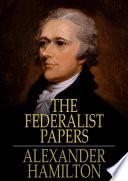
“When the sword is once drawn, the passions of men observe no bounds of moderation.”
No. 16 http://www.constitution.org/fed/federa16.htm : The Insufficiency of the Present Confederation to Preserve the Union
The Federalist Papers (1787–1788)
Context: When the sword is once drawn, the passions of men observe no bounds of moderation. The suggestions of wounded pride, the instigations of irritated resentment, would be apt to carry the States against which the arms of the Union were exerted, to any extremes necessary to avenge the affront or to avoid the disgrace of submission. The first war of this kind would probably terminate in a dissolution of the Union.


